|
By Al Players: 1 Platforms: Nintendo Switch, PC Retro-inspired 2D action platformers and the Metroidvania genre seem to go almost hand-in-hand, so I was excited when I laid eyes upon Ataraxie for the first time. I found its retro aesthetic quite appealing, and the fact that it took place in an Egypt-like setting drew me in even more. Having released onto Steam earlier this year by way of developer/publisher Studio Gravenoire, it's set to arrive soon on the Nintendo Switch. It's the Switch version that we'll be looking at today, and hopefully we'll find out if my excitement was justified or not. There's no need for long intros here, so let's dive right in! Ataraxie puts you into the bandages of an ancient pharaoh named Antef. Antef finds himself more than a little dead following an assassination plot set forth by the most trusted members of his own court. You awaken in your new tomb confused as to what happened, but you immediately embark on a quest to set things right. First you have to find out what's transpired while you were away in the afterlife. Well, as it turns out, things are far worse than you first realized. Not only is there corruption in the court, but there's corruption within the world itself. If that weren't enough, enemies from neighboring empires are threatening whatever stability remains in your former empire. There's lots to figure out, and so far none of this has much to do with the villains who put you into this situation in the first place. Those nefarious backstabbers have to be dealt with as well, but none of these tasks are going to be easy. There's lot more to discover along the way, but I think I'll leave the details for players to find for themselves. Besides the fact that I don't like going too far into spoilers in my reviews, Ataraxie has more than a few plot elements that honestly still confuse me. There's an interesting plot to discover here for sure, but it's told in pieces scattered throughout a game that allows you to come upon them in a very random order. Add to this the fact that said pieces of plot are given to you by way of random NPCs, scattered diary entries, and even by your betrayers themselves when you finally come face-to-face with them. It probably isn't all that hard to see why I had problems relaying the story fully here. Suffice it to say that it's surprisingly deep for what it is, but you can also choose to skip most of it if that's your thing too. Either way, I applaud the developers for the work they put into it. This is the first place of many where it becomes obvious that the developers put their heart and soul into the game, and I can't really fault them for falling upon the story in a very scattered way. Maybe it's due to the fact that Antef hasn't been dead for all that long, but he's actually one spry fellow all things considered. He can walk, jump, double jump, slide down walls, crouch, and attack. His initial attack is rather weak, but you can power it up over the course of the game. It also comes with a very short range, but you do gain the ability to perform long range attacks later as well. It all that weren't bad enough, Antef is also very fragile at the start of the game too. He has a life bar that gets chipped away at with every attack, and the only reliable way to heal is via a save point. You can also eat some of your followers for life, but that's going a bit too far into game mechanics. You can also upgrade things like Antef's life and defensive capabilities, but you'll spend much of the game stressing over each and every hit he takes. Dying isn't too big a deal though, as it simply sends you back to the last save point you visited. These save points also act as quick travel spots, and the only place to actually see the in-game map. Since I mentioned it a few times already, I guess I'll cover the basics of the upgrade system, even though it's a bit too complicated to fully lay out. Scattered throughout the world are several items that can be placed within a skill tree to upgrade Antef. You can move said items around for various builds, and this is something you'll be doing lots of early on. Eventually you can max out most of said skill tree, though by that point you'll probably already have most of the game's challenges down to a science. Besides the more permanent upgrades that I just mentioned, you can also temporarily increase Antef's skills in the game's cities and villages. It may sound like things are bit more complicated than they need to be (Mainly because they are.), but most players will grasp the finer points of gameplay after the first couple hours or so. Whether or not Antef was able to swim before is never mentioned, but water is one of the many things that can now kill him. You might think that water is a rare sight within a tomb, but Ataraxie actually takes you to more locales than you might realize. You'll visit cities, fortresses, forests, and deserts in your journey, and each have their own types of enemies that are eager for Antef's dusty blood. If enemies weren't enough, a corrupting light shines through much of the world, even within its very depths. This light comes in three colors, red, yellow, and blue, and will probably be your biggest enemy throughout the game. Blue light makes it harder for Antef to move, yellow light hides certain enemies and items from view, and red light simply causes you damage for every second you're in it. There's no way to stop the light, but it will change over the course of 30 seconds or so. You can also force the change by expending some of your essence, but waiting it out is usually your best bet. I'll admit that I found this light system to be very annoying when I first started the game, but getting through it eventually became second nature. It's a neat quirk, even if I honestly can't figure out what how it's supposed to work in-universe. I'm not joking either when I say you'll be facing off against the light more than anything else, as just about every room will have it. In short, do yourself a favor and get used to it as early as possible. While Ataraxie is definitely a Metroidvania game, its world is laid out in a way that reminds me a lot of the first Legend of Zelda on the NES. In that game you could easily walk into areas you're not prepared for, and even complete several areas out of order. Most modern Metroidvanias block progression behind new skills or items, but Ataraxie lets players go where they please from the very beginning. This can easily get you into trouble early on, and it also makes the game not all that beginner-friendly. I spent the entire first hour of the game thinking that I wouldn't find much to talk about in the review, only to eventually get the hang of exploring each area thoroughly before moving onto the next. That may sound like an obvious thing, but Ataraxie really doesn't do much hand-holding when it comes to what's expected of you. Enemies are annoying, save points can sometimes feel like they're miles away, and fully clearing maps can be a chore when the light is the wrong color. Ataraxie may have a very rough beginning, but it really does shine if you give it a chance. I have to admit that I initially went into Ataraxie not expecting much. I know I said I was looking forward to it when I saw it previewed, but the first half hour of the game was anything but pleasant. Thankfully I stuck through it, and ultimately left feeling very impressed. This is a solid game that offers a strong challenge, and it even works in several new elements to the Metroidvania genre. Said elements don't always click as well as they were intended to (Looking at you light system.), but I still appreciated their inclusion. With that said, there were some parts of the game that I felt were lacking. I've kind of dodged around it a bit, but combat in Ataraxie is anything but fun. Hit detection is all over the place, and I spent much of the game not knowing if I was hitting an enemy, or even if the enemy was hitting me. It always seemed to work out in the end, but I could never get it out of my head that the entire combat system is broken. Not once did I clear an area or boss and feel like it was due to skill. More often than not, it was just random luck, or maybe the game's hit detection RNG finally falling in my favor. The problem with all this is that I actually played the game on the "Scribe" difficulty. Even though it's technically the "easy" setting, it's what the game defaults to. I didn't realize I was playing on that difficulty until I started up a new game late in my review period. "Pharaoh" difficulty is technically the standard one, and I found it to be near unplayable due to its difficulty. Every problem I had with the game was now multiplied by ten, and I feel like asking a very AVGN like: "WHAT WERE THEY THINKING!?!?!" when I was done playing it. If I were rating this game on the harder difficulty, I wouldn't be nearly as nice in this review. Honestly, my advice is to only ever bother with the Scribe difficulty if you want to keep a grip on your sanity. I'm going to cover Ataraxie's visuals and music together, since I have mostly the same things to say about both of them. Though the gameplay follows more of a 16/32-bit style Metroidvania formula, its graphics stand firmly in 8-bit aesthetics. This is both a blessing and a curse, as while things look very cool in a retro-inspired way, they also don't have nearly as much detail as they could have otherwise. Enemies are rather plain and blocky, and Antef himself isn't exactly the coolest looking hero out there. Nothing is particularly bad of course, but it's not a good sign that I think the only true standout sections of the game visually are the title screen and the opening cutscene. On a similar note, the game's music fits the mood and atmosphere well, but it doesn't do much else. I tried my hardest to get a grip on what the soundtrack sounds like for this review, but I couldn't get a single track to stick in my head once the game was off. Once again noting is bad, it's just existing at something of a minimum. I hope I'm not coming off too harsh here, as I did enjoy both of these aspects of the game, but they fell just short of being as unique as the rest of the game that they're attached to. The world of Ataraxie is surprisingly large, and the game easily takes several hours to clear. Much of this time will probably be spent figuring out where to go and what to do, and then dying repeatedly once you found a goal, but it's a rewarding gameplay loop nonetheless. One can also try out a more optimized run a second time over, or even go for that dreaded Pharaoh difficulty. The sky is the limit, and there is lots of replayability to be found here. At the very least, there are bound to be tons of secrets and items that you missed in your first playthrough anyway. This is the part where I reveal the price, and compare it to the content you get. Rarely do I think a game is priced rather low for what it offers, but Ataraxie feels almost criminally cheap at its current $4.99 price tag. It's even on sale at the time of this writing. This is a steal of a price, and I don't think I have to do any convincing on that front. Even though I think that Ataraxie has more than its fair share of problems when it comes to things like difficulty and gameplay balance, I found it to be very enjoyable overall. It was fun, original, quirky, and there's a charm to it that really draws you in. I honestly can't stop raving about its price either, and it makes giving it a positive recommendation all the easier. Grab this now if you have a Nintendo Switch, and thank me later. Now if you'll excuse me, I have an empire to save. See you in the next one! Check Out Ataraxie on Nintendo Switch: https://www.nintendo.com/us/store/products/ataraxie-switch/ Story: A Gameplay: B Graphics: A- Music/Sound: A- Value: A+ Overall: A- Pros: + A great take on the Metroidvania genre that offers up some unique gameplay quirks. + The graphics and music have a cool retro aesthetic to them. + Though the opening sections of the game can be a little rough, there's a huge world to explore, and lots to see and do. + Powering up Antef is fun, and there's lots of ways to do it. + There's a great story to be had here for those looking for it. + At just $4.99, picking this one up is a must. Cons: - The hit detection makes combat feel very broken. - Difficulty can be all over the place at times, and that's just speaking of the "easy" Scribe difficulty. - Even though it becomes manageable after a while, the light system feels rather tacked on. - Several parts of the game feel unpolished, and the graphics and music fall short of truly standing out. A copy of this game was provided to us free-of-charge by the publisher for the purpose of this review. This did not affect our review in any way. #Ataraxie
|
Search
Contributors◆ Angie
◆ Emily ◆ J.D. ◆ Janette ◆ JT ◆ Manuel ◆ Nestor ◆ Rose ◆ Sylvia ◆ Teepu ◆ Tiffany ◆ Winfield Archives
March 2025
|
© 2014-2025 A-to-J Connections. All Rights Reserved.

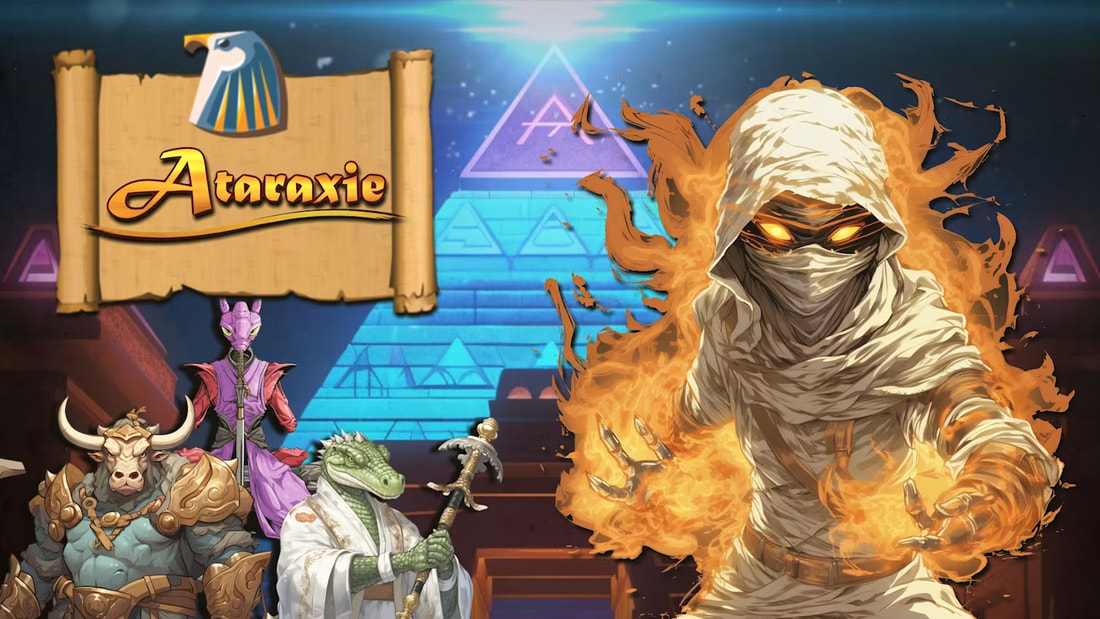
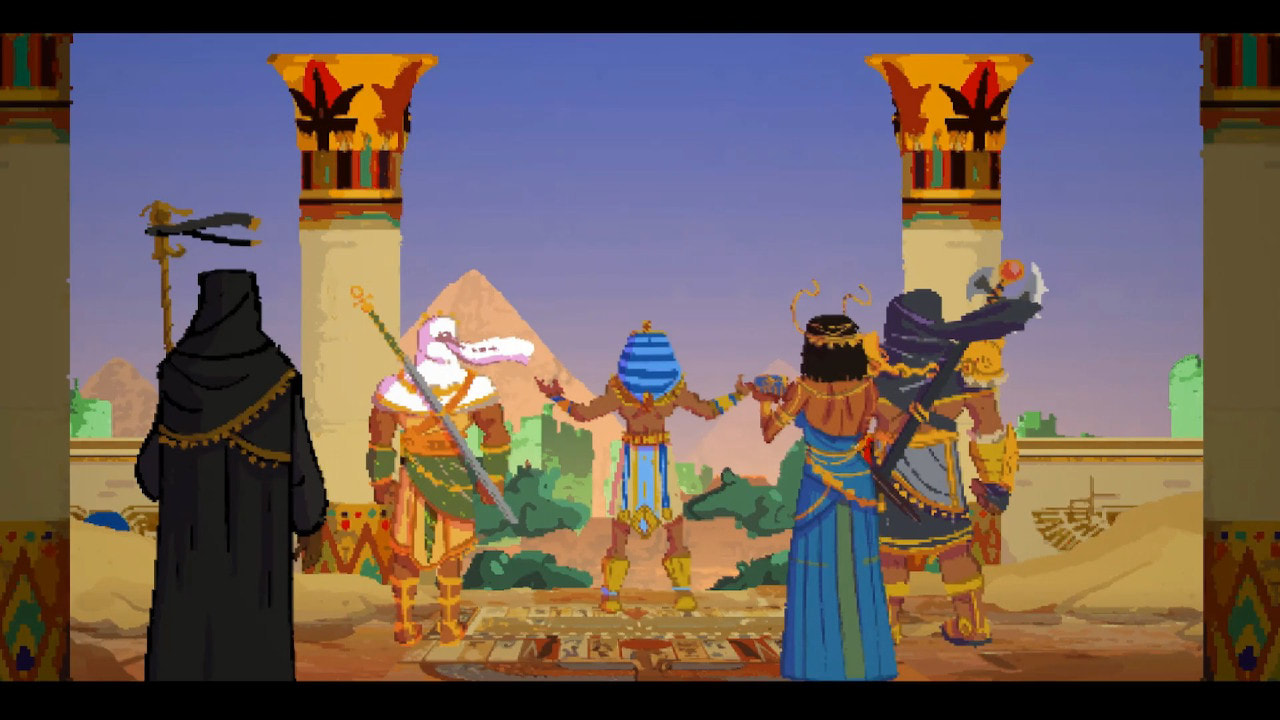
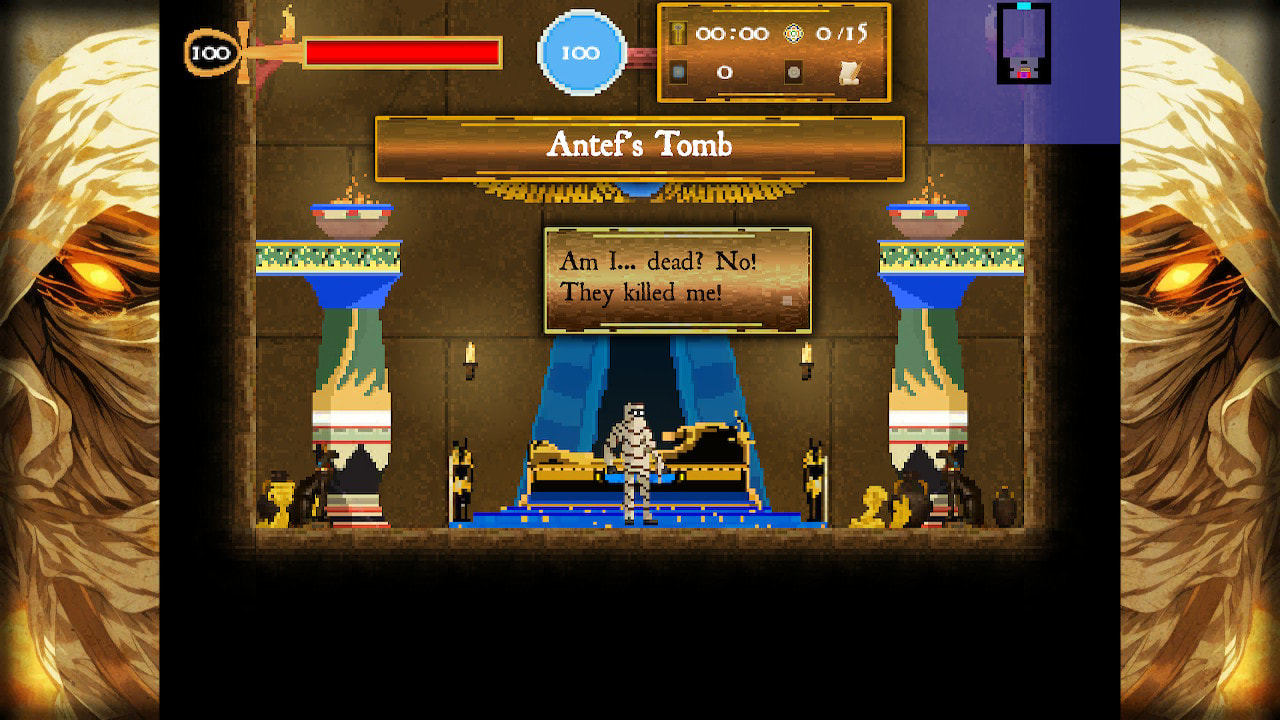
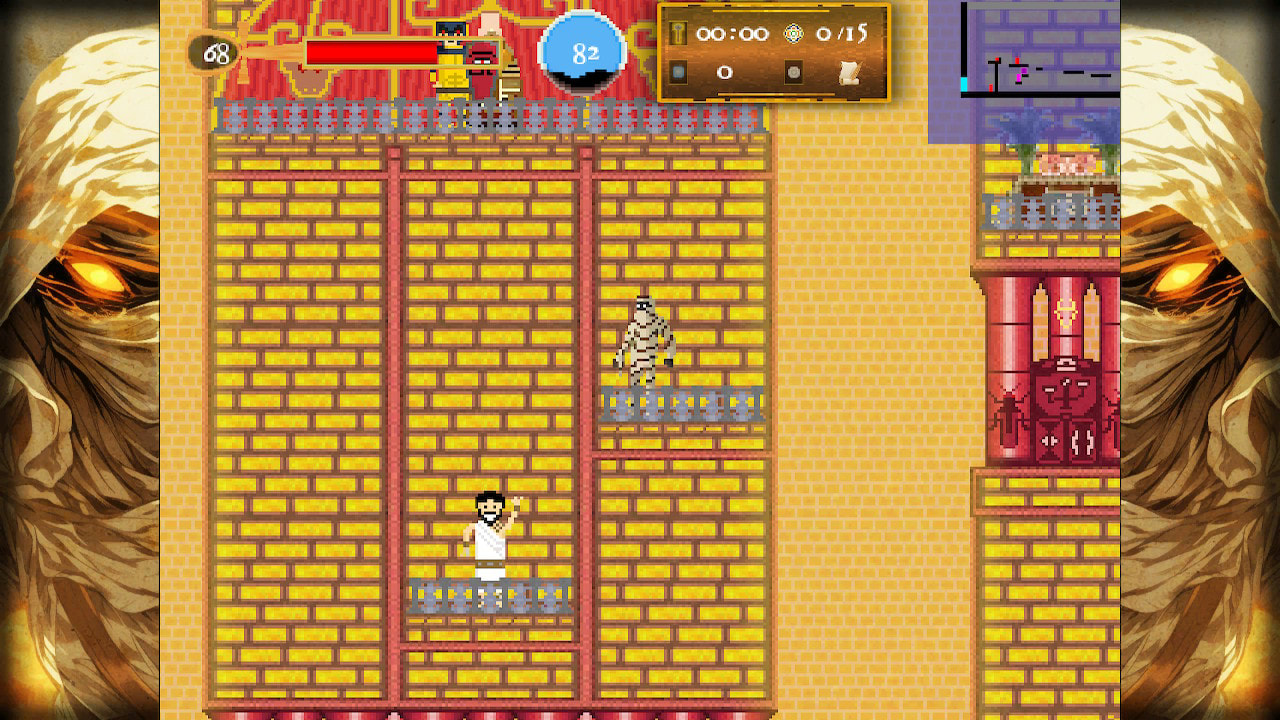
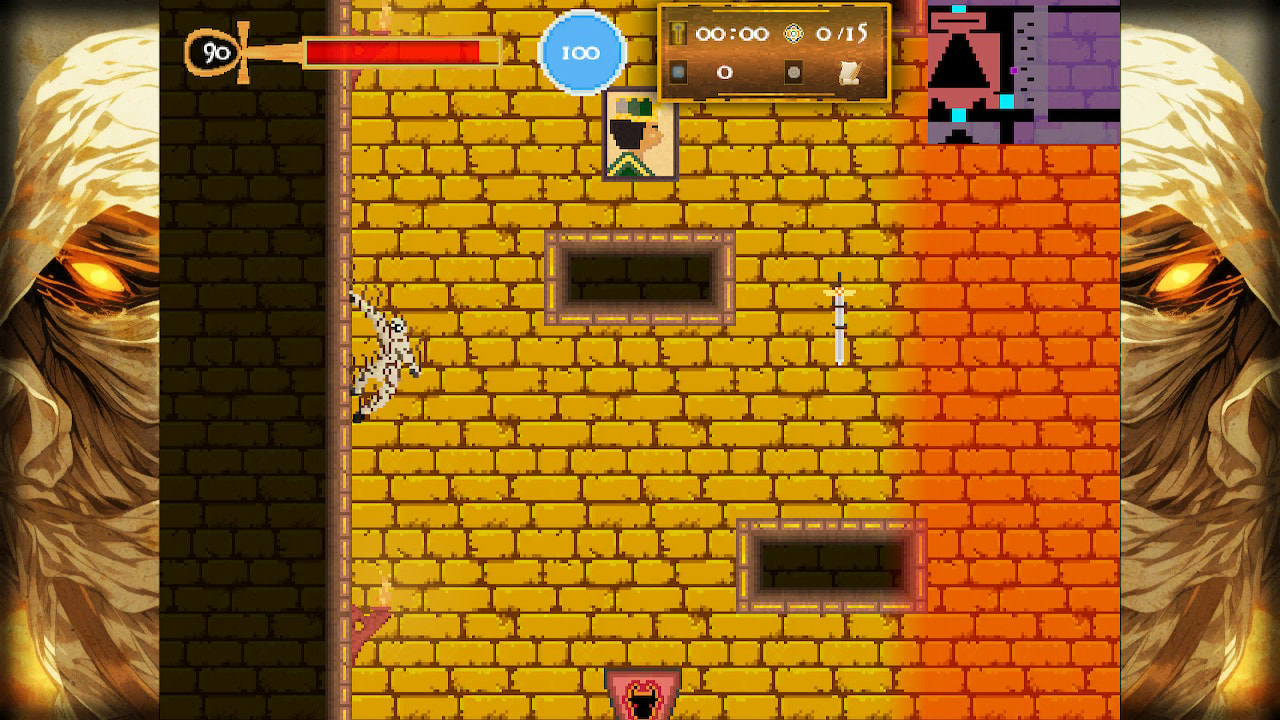
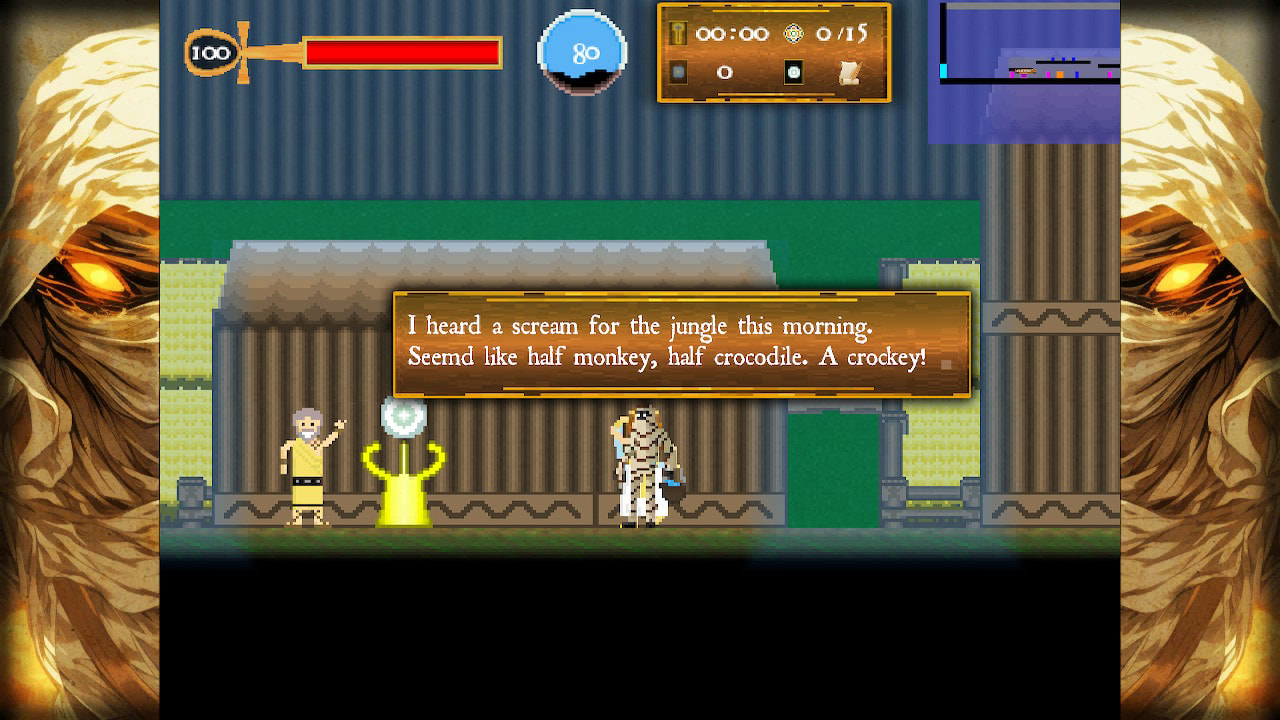
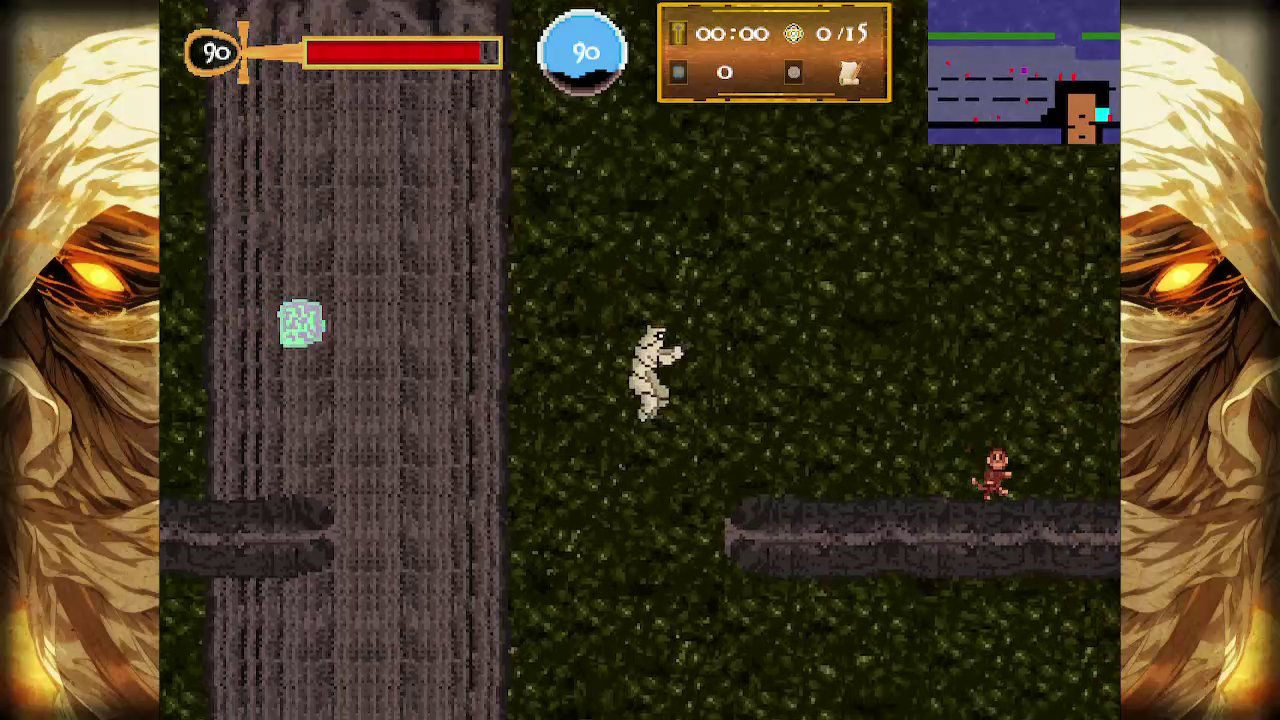
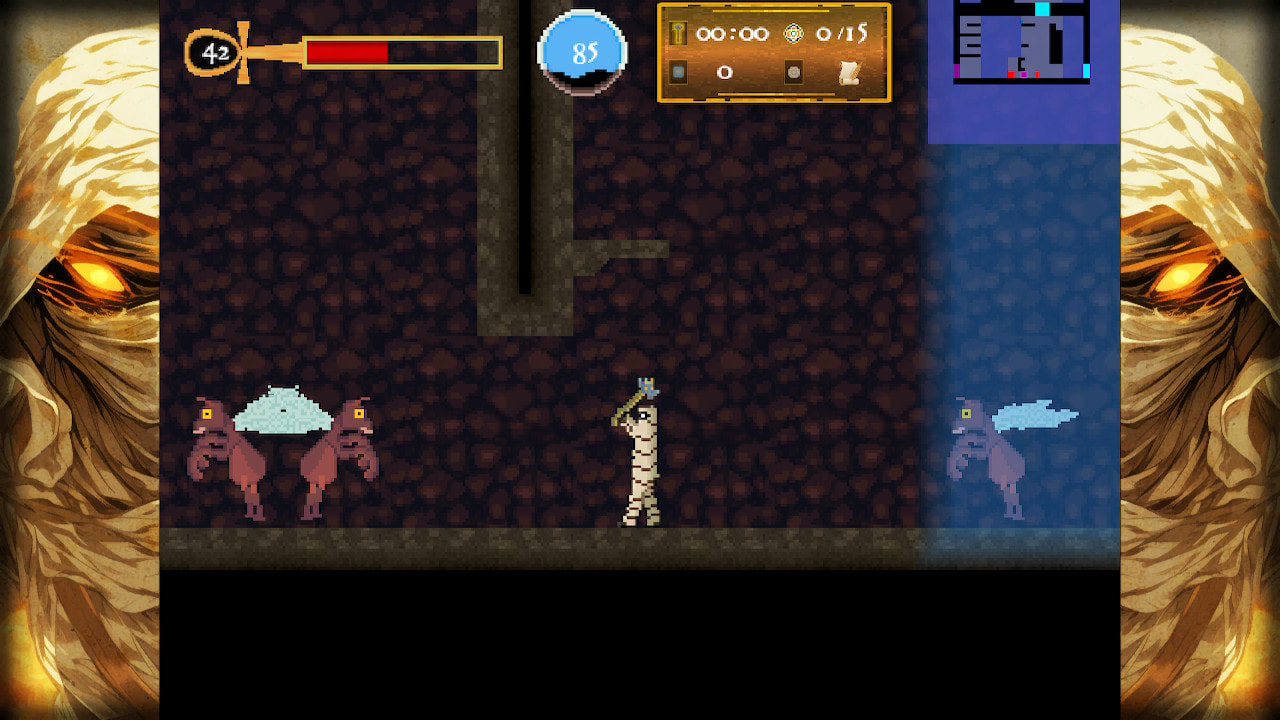
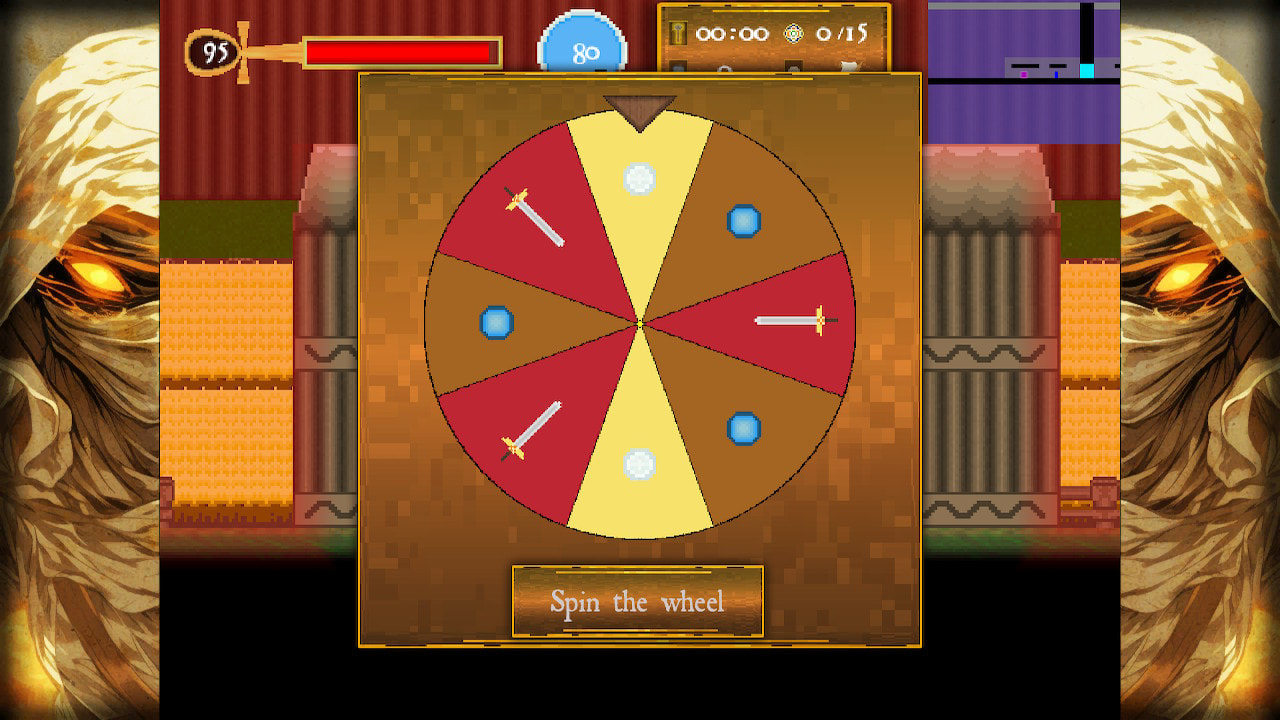
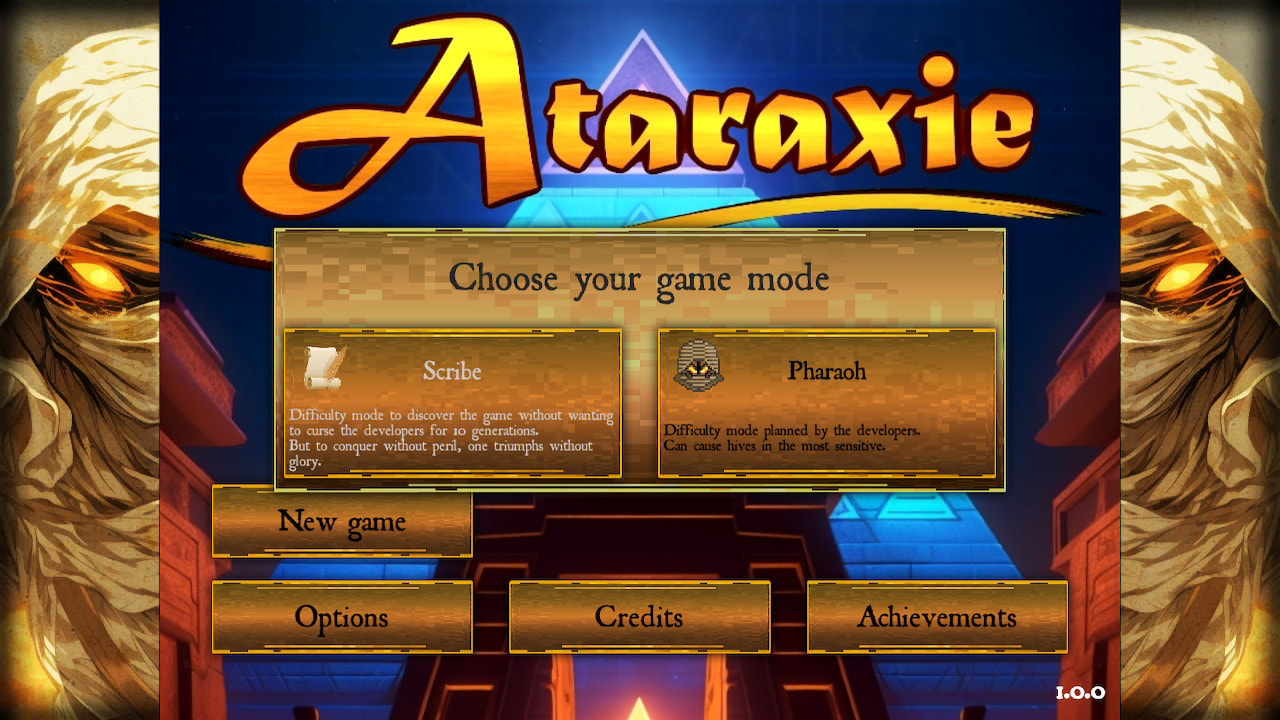
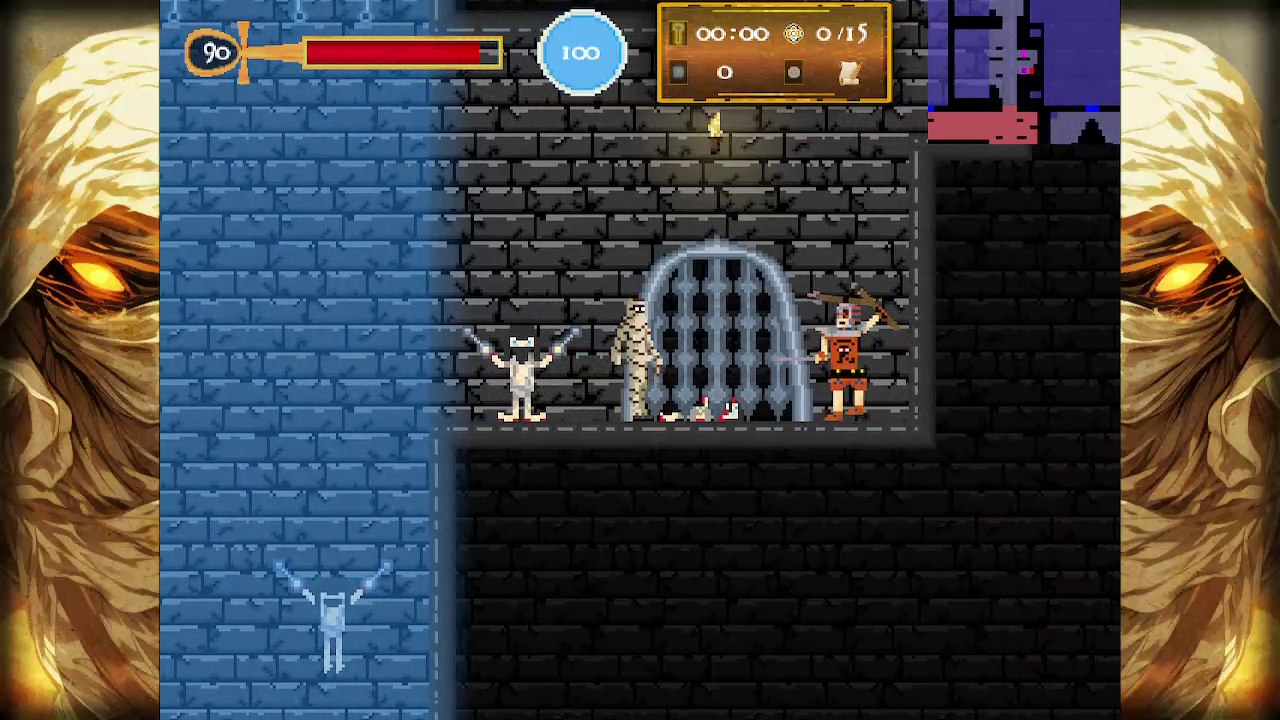
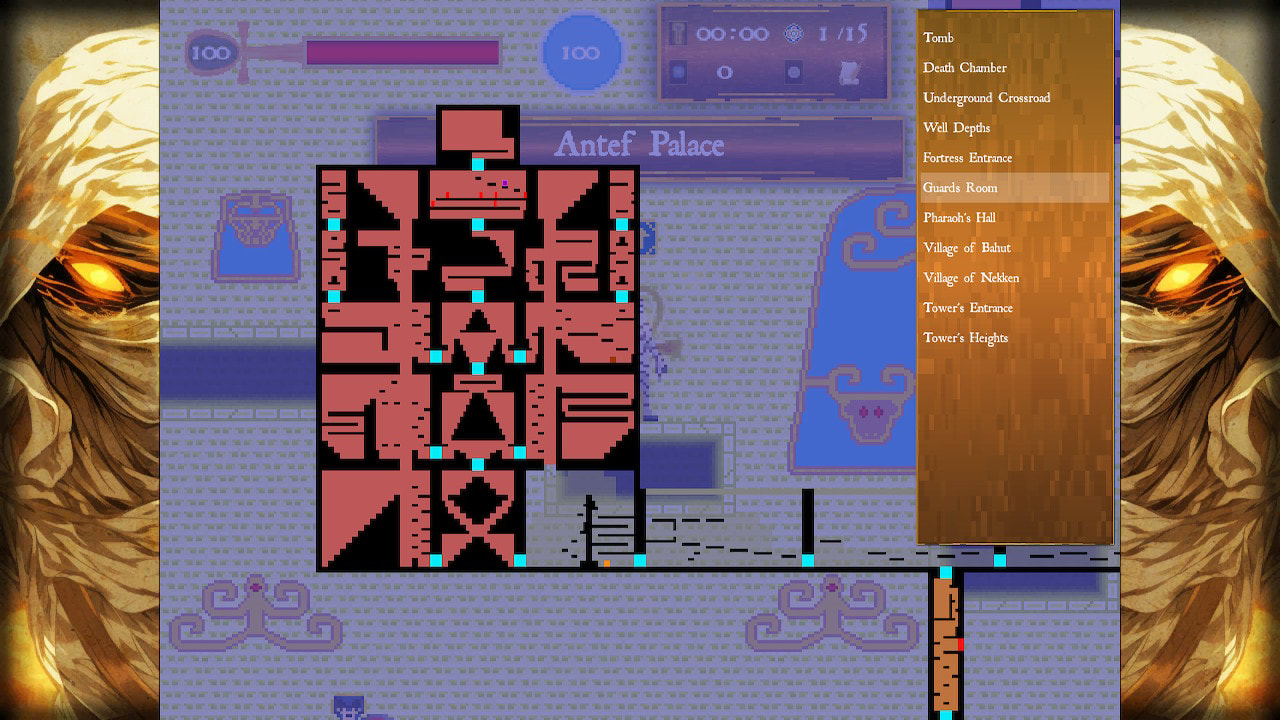
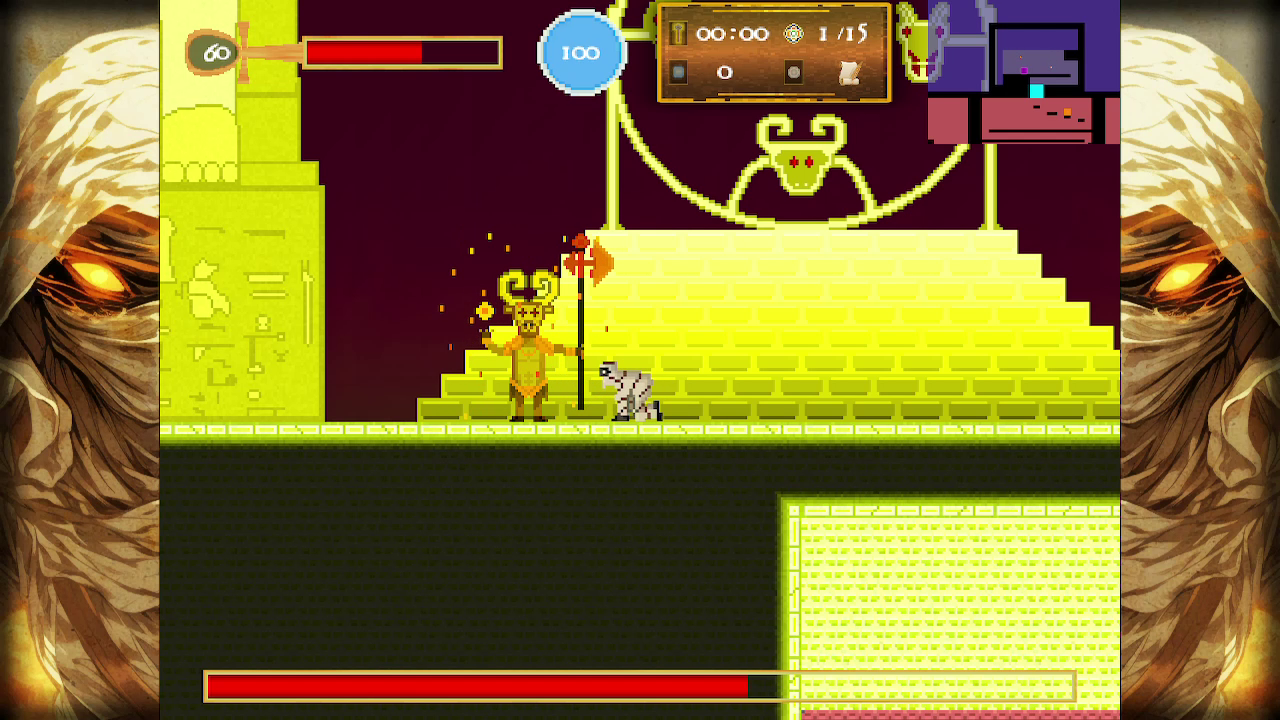
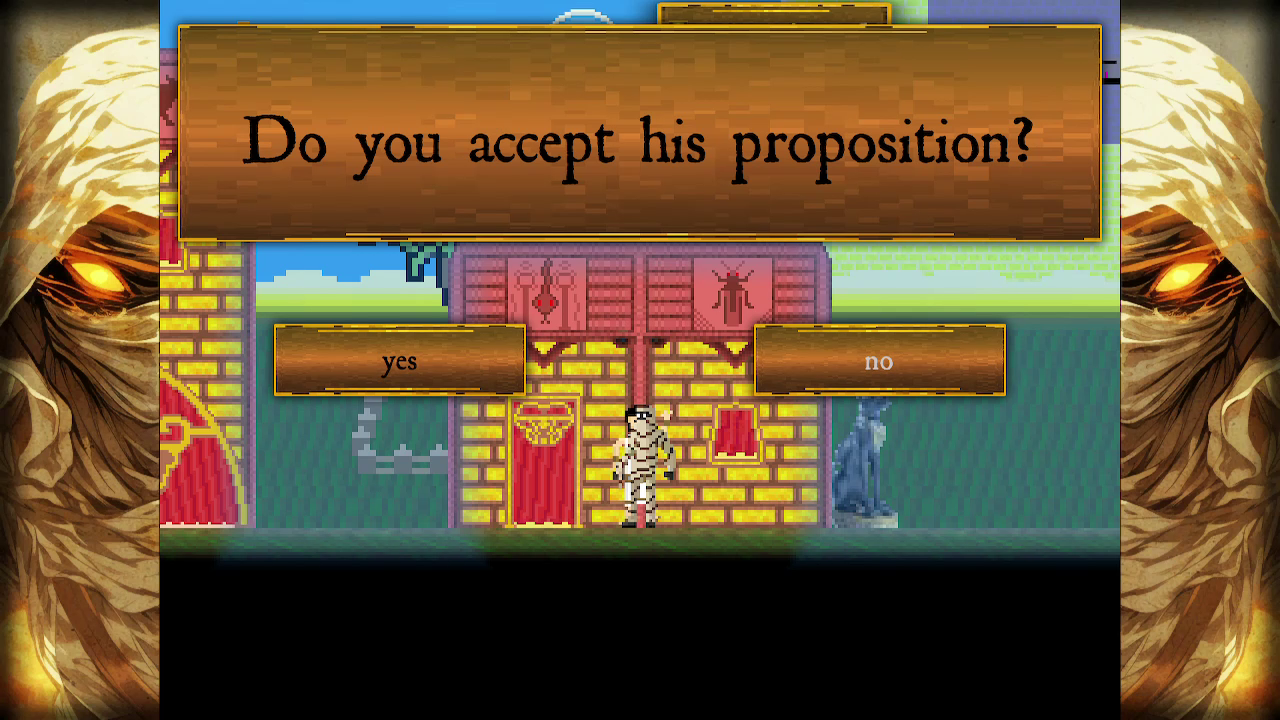

 RSS Feed
RSS Feed